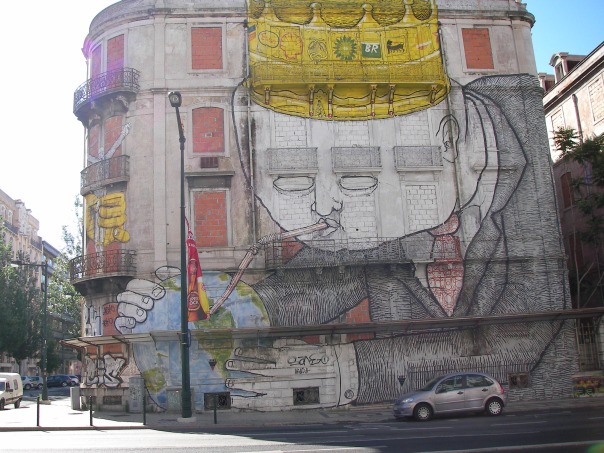Category Archives: Eugenics
A helping hand to Evolution
What if we could single out the unproductive?
What if we could find, and eliminate, the ones who do not fit in?
Even better, what if we could prevent them from entering our world?
Some people may want to ponder these questions.
Some people may also want to act on them, and do something about it.
An organisation, headed by its Leader in collaboration with the man known to them as the Treasurer, has been formed, and their goal is to create a better society. They will do it using DNA, and they will use DNA patterns for selecting the ones who are fit, and suitable, and have the talent for science and rational reasoning.
They will do it while our protagonist, Oliver Dalton, continues his ordinary life, with a permanent job at the University and with a temporary assignment at the Department of Education and Societal Health.
He has been hired, by the Department, and his task is to see patterns in DNA, using the national DNA database as his data set. His world interleaves with the world of the organisation and their Treasurer, and it affects Oliver and his family, in ways that they had not anticipated.
The organisation refines its plans while Oliver spends time in Munich, visiting his daughter and celebrating his own birthday. When the organisation finally decides how to carry out their mission, by shifting their focus from elimination to prevention, Oliver is busy with his work. When Oliver is informed that his daughter is in danger, and the police steps in, this is not an end, but rather a beginning, of an even more complex situation.
As the final plans are set into motion, the police and the Dalton family do what they can to track down the organisation, and charge them for a crime that will “eliminate whole generations, without harming, or killing, a single person.”
Set in Munich and in an unspecified Northern country, in our current society, with science and technology as driving forces and with art in its different forms as a sometimes debated complement, Prevention is a “fast-paced modern thriller. The plot is well executed and the writing is crisp and engaging. The character of Oliver Dalton is well drawn and relatable and the cast of supporting characters is equally realistic. Prevention probes into the field of DNA matches and profiling, and the various uses that gene matching can be put to.”
Updated backside text
Finding those who are not fit
What if we could find them? – the ones who are not fit
and then, when we know who they are, we could take action …
Oliver Dalton’s job is to see patterns in DNA. His government has hired him, on a temporary contract, and his task is to analyse data from the National DNA database. The purpose, his government says, is to find persons who are genetically fit for jobs in science and technology. Such persons are very much wanted, and we do not consider it morally wrong to use DNA profiling to find them.
Oliver discovers that there are others who seem to have the same idea. He sees traces of searches, and pattern matches, done by someone other than himself, and he considers reporting his findings to his manager. What if this is an intrusion, he wonders, into our national storage of our complete population’s DNA?
Unknowing to Oliver, he is correct in his assumption. An external, in fact international, organisation has adopted the government’s way of classifying humans. But in contrast to Oliver, they have decided to instead search for persons who are not fit for science and technology.
“And when we know who these persons are,” they reason, “we could of course take it one step further and seek them out. And since their contribution to real, measurable, advances of our society is as good as none, what would be wrong if we instead chose to eliminate them?”
The organisation refines its plans while Oliver spends time in Munich, visiting his daughter and celebrating his own birthday. His wife is with him, and they look forward to a week with museums and visits to their daughter’s school. She is a student of Drama, and like her brother Michael, who is an opera student, she has chosen the artistic way.
When the organisation finally decides how to carry out their mission, by shifting their focus from elimination to prevention, Oliver is busy with his work. When Oliver is informed that his daughter is in danger, and the police steps in, this is not an end, but rather a beginning, of an even more complex situation.
As the final plans are set into motion, the police and the Dalton family do what they can to track down the organisation. Will they find out how, and where, and by which means of distribution, the organisation will reach their targets? And what will the eventual crime charge be? How can we charge for a crime that wants to “eliminate whole generations, without harming, or killing, a single person?”
And will the Dalton family itself, with its artistic traits, be selected as a target?
(first stab at backside text – book ready! – starting to figure out how to publish)
How the %&*# can I find my voice?
They say I have to have a voice.
A voice when I am writing, that is. A voice that makes my writing instantly recognizable as mine. But where is this voice? And do I have it? Perhaps I have no voice at all!

I decided to practice. This was when I took my first steps in the preparations for writing a draft for a novel. I had previous experience in writing, that was clear. I had written research papers and even a thesis. So perhaps I had a scientific, tech-voice? If you want a sample of it, it may sound like this:
Fast motion along a predefined path is important in many robot applications, and requires utilization of the maximum allowable torque range. If the torque is at the limit, there is no margin to cope with disturbances or modeling errors, which may result in deviation from the path. A path velocity controller for modification of the velocity along the path when the torques saturate can improve path tracking. The path velocity controller acts as an outer feedback loop outside the ordinary robot controller, and modifies a nominal velocity profile, computed by minimum time optimization using available methods.
But now I should do fiction. What was meant by that? That I could, or perhaps should, make things up? That was sort of unfamiliar, at least if I wanted to gain some experience from my previous writings.
They say that authors blend in their own life in their stories. I had certainly heard of that. And I had also heard of angry relatives suing authors for making too many private things very public. So here one might need to tread softly, to avoid breaking hearts and making people upset. And it would also be important to show some dignity towards people who know me, and still want to know me, even after I have written the book.
I read Alan Watt, and I really liked his suggestions of stream-of-consciousness writing. I started with capturing small scenes from my life, and then trying to reproduce them onto a piece of computer screen. Here is a lunch sample, where a bunch of work-oriented persons eat, in a Scandinavian setting, doing their best to avoid the unspoken taboo of talking about work during lunch time:
They talk during lunch. Sometimes the conversation flows freely, and sometimes long periods of silence occur, broken after a while by some of the group using their creativity to come up with a new subject to talk about. They mostly talk about facts. They do not talk about feelings. No one says “did you read that book, it was truly fantastic, it gave me a complete new picture of the Chinese culture”. Perhaps someone says “did you know that there is a golf player who can reach 300 meters using only his putter”. This may be followed by a comment, like “did he do it in a contest?”, and perhaps a somewhat scientific observation in the style of “can he control his muscles or does he hit that hard all the time?”.
Since I always was a strange cross-breed between science guy and something more artistic (perhaps writing, perhaps rock and roll, perhaps opera – I still do not know), I tried to put some art into the writing. So here is Michael, character-to-be in Prevention – the book that I now prepare, leaving his rehearsal, only to be attacked and hit to the ground some minutes later:
Michael Dalton did not know, then, as he prepared himself for the rehearsals, that he was in for a new period of silence. This time it would not be determined by himself, as a result of a failed audition, but instead by forces outside of his own control. He did not know it when he sang his aria, or during the majestic sextet when he listened to the almost divine beauty of the Dove sono aria, and he did not know it when he said goodbye and see you tomorrow to his fellow actors and singers. Instead he felt happy and full of enthusiasm and life. He did not know, shortly thereafter when he mounted his bicycle for the short ride home, that this was the last rehearsal for him, at least for a long time to come.
He only knew it later in the night, when he woke up, stirred awake by a nurse at the nearby hospital, telling him to be quiet and yes you heard me right, you are not allowed to sing, neither to speak actually. You have to be very calm, and stay where you are, in this bed, at least for some days to come.
I found this a good way of practising, and I listened to the wise words of Austin Kleon, saying that no matter how hard you try to copy something or someone, you will always end up doing something original. I decided that this was a way of writing – take your experiences and write about them – however in a state of mind where you feel free to really invent things as you go along. And as a result, some new stuff, completely invented and not very true at all, may come out.
And when you read it afterwards, and revise it, you might even find it a bit interesting!
Of course you need structure too! I studied a bit about structure, for example by following a sequence of good videos in the Plot Whisperer series by Martha Alderson, and by reading a bit in Story: Style, Structure, Substance, and the Principles of Screenwriting.
I also found the snowflake guy a.k.a Randy Ingermanson interesting, and I started to subscribe to his newsletter.
And piece by piece, mood by mood, some scenes and also some characters emerged.
I also decided on the beginning. There would be a prologue, somewhat secretive with some hidden symbolic meaning at the end. And then there would be the first scene, opened by Annie Dalton, daughter of the great Oliver Dalton, professor of System Studies, in a phone call indicating potential problems.
Her first words are simply
“Dad, I’m sorry, I can’t make it. I have this pain in my stomach. I think I need to stay at home tomorrow.”
The timing is not perfect, since this is the day before Oliver and his wife Elizabeth are leaving for Munich, where they will meet Annie and where they will celebrate Oliver’s birthday, and everything is already neatly planned, including a list of all museums that Oliver wants to see.

They are not yet aware that Annie plays a part in a bigger scheme, where powerful organizations do what it takes to shape the society, and its inhabitants, in a for them desirable direction. And the old tradition of Eugenics, pioneered in the early 1900s, is suddenly both alive and well.
What if we could single out the unproductive?
What if we could use DNA for that purpose?

These were questions I pondered, not for myself in person but for my candidate villain. I was searching for a theme for my book, the one I had decided to write, using NaNoWrimo as a base for creating the first draft.
Thinking about it a little bit more, I came to the conclusion that both questions – the selection of people as well as the DNA method for doing it – rewarded the book a classification as science-fiction.
But as I found out, this was not completely true! After having done some research, I had to change the book category to the single word fiction.
This was in 2011, in the pre-november time frame. I was not yet a fully evolved Kindle addict, so I used also other e-book readers on my phone. I started with the Aldiko reader, which I found interesting since it was easy to download free books.
Among the free books one could download, most were old classics like Robinson Crusoe and Moby Dick. For some reason – I do not remember exactly how – I had come to know the term Eugenics. I downloaded a book with that name, by a man called Gilbert Keith Chesterton. I found it a bit interesting, but mostly rather dry and a bit old-style (it was written in 1922).
But there were some interesting passages. Like the claim that the Eugenic moral basis is that “the baby for whom we are primarily and directly responsible is the baby unborn”. As I understood it, this was not a statement relating to abortion but rather a statement on the possibility to prevent a child from even being conceived, by controlling which couples were allowed to be formed, between man and woman. In this way, one could indirectly control the types of children being born.
Thinking about it, we still have that control, at least here in Sweden. If you want to get married, you have to ask the state for permission, and then the state will check if there are any impediments to the marriage. Currently, it is used for checking that you do not marry more than one person, and that you do not marry a close relative, but of course, in the wrong hands, such a law can be used for advanced population planning (assuming for the moment that children are conceived only by married couples).
Another way to control the population would be to go directly to the men and women, selecting those who had the least suitable traits for a productive society, and simply ask them to not have any children.
This was actually done, in many countries, including Sweden, and in many cases the asking was not done at all, at least not in a way that gave the victim a choice to opt out of the whole procedure.
So state-controlled programs for sterilization, as a way to prevent less suitable genes from propagating through to new generations, were indeed carried out, and thinking about if this could be an interesting angle for a book, I had the idea to create an organization that would revive these ideas, now, in the modern world, where much more advanced DNA technology is available.
The next question then becomes: can we use DNA technology for the selection part? If I put on my most scientific manner I can say that I doubt it, but you never know! For example, here is an article where researchers claim that they can filter out people using intelligence as a criterion.
This made me decide on the overall plot structure. Yes there would be an organization revisiting the Eugenics ideas, and yes there would be some good guys – perhaps an absent-minded professor-type with at least some resemblance to the aspiring author – and there would be an interesting way of thinking, done by the bad guys, to actually decide whom to single out as victims.
And of course they need a method for effectuating their plans. They need some channel of distribution and some network of operators that can do the actual work.
And their goals will be noble (from their point of view), I mean after all they are doing a good thing for society, by making it more efficient and productive.
And most of all, their main plan will eliminate many unwanted persons. And this will be done without casualties. In fact, not a single person will be physically harmed!
This also led to the title being decided.
The book will thus be called Prevention, and it will be ready soon …

